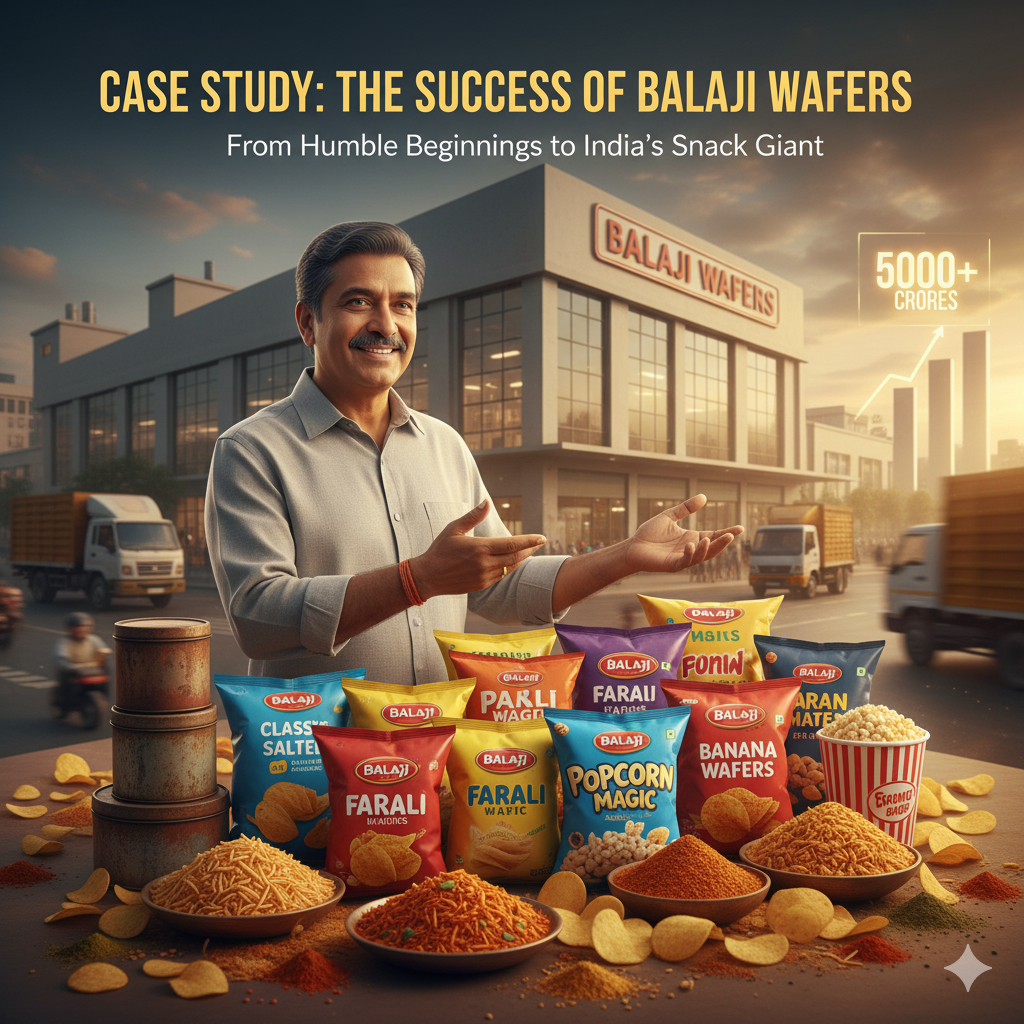
Balaji Wafers, a renowned name in India’s snack food industry, was founded in 1972 by Chandubhai Virani and his brothers in Rajkot, Gujarat. From modest beginnings with an initial investment of just ₹20,000, the company has grown to become the second-largest player in the potato wafers market, trailing only behind the global giant, Lays. This case study explores the journey of Balaji Wafers, highlighting its innovative strategies, challenges faced, and overall growth trajectory.
History and Background
The origins of Balaji Wafers are somewhat humble. After facing setbacks in the farming sector, Chandubhai and his brothers moved to Rajkot, where they initially worked in a cinema canteen. During this time, they discovered the potential for selling snacks, transitioning from masala sandwiches—which faced issues with spoilage—to potato wafers. Frustrated with unreliable suppliers, Chandubhai decided to manufacture wafers himself.
Starting with a small shed in his home, he gradually built a reputation for quality. By 1984, the business had expanded significantly, leading to the establishment of Balaji Wafers Pvt Ltd in 1992, allowing the brothers to compete against established names like Uncle Chips and PepsiCo.
Marketing and Distribution
Balaji Wafers’ marketing strategy has been integral to its success. By focusing on regional preferences, the company effectively catered to local taste profiles, which helped them stand out in a crowded market. The founding philosophy, “Business gives you profit,” underscores the commitment to delivering high-quality products and excellent customer service.
The company expanded its manufacturing capacity by acquiring bank loans and setting up facilities across Gujarat and Madhya Pradesh. Today, Balaji operates multiple factories with a processing capacity of over 1,000 quintals of potato wafers and 5,000 quintals of other snacks daily. They have also ventured into international markets, including the USA, UK, UAE, and Australia.
Challenges Faced
Balaji Wafers encountered several challenges during its growth phase. One significant hurdle was maintaining consistency in product quality while hand-making snacks. To tackle this, Chandubhai ingeniously assembled machinery to automate the wafer production process, leading to increased efficiency and improved quality.
In 2004, Balaji faced a legal lawsuit from PepsiCo, which accused them of copying their product design. However, rather than succumbing to the pressure, Chandubhai redesigned their packaging and branding. This resilience not only helped maintain their market presence but also bolstered sales, demonstrating the importance of adaptability in business.
Growth Strategies
Balaji Wafer’s growth can be attributed to several key strategies:
- Market Expansion:
- The company strategically extended its market reach within India and beyond. With manufacturing facilities established in various states, Balaji tailored its products to local palates, enhancing market penetration.
- Product Diversification and Innovation:
- The company offers a wide range of snacks, including wafers, namkeen, and Western snacks, with each category featuring multiple flavour options tailored to local preferences. Recent innovations include healthier snacking options and the introduction of their noodles brand, “Gippi.”
- Investment in Technology:
- Balaji Wafers took an early stance on automating its production process. By investing in advanced machinery from leading global suppliers, the company improved production efficiency, reduced costs, and ensured consistent product quality.
- Customer Satisfaction:
- The company prioritises customer satisfaction by offering high-quality products at reasonable prices. Their focus on maintaining consistency in taste and affordability has fostered brand loyalty, positioning them favorably against competitors.
Conclusion
The success story of Balaji Wafers embodies the principles of perseverance, innovation, and quality. From its inception as a small family business to a major player in India’s snack market, the company’s journey illustrates the impact of diligent strategies and adaptability in overcoming challenges. Balaji Wafers serves as an inspirational case study for aspiring entrepreneurs, showcasing the potential of hard work and customer-centric philosophies in achieving significant business success.
